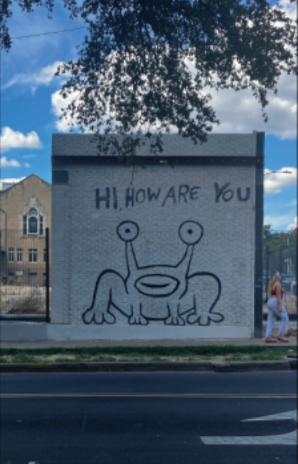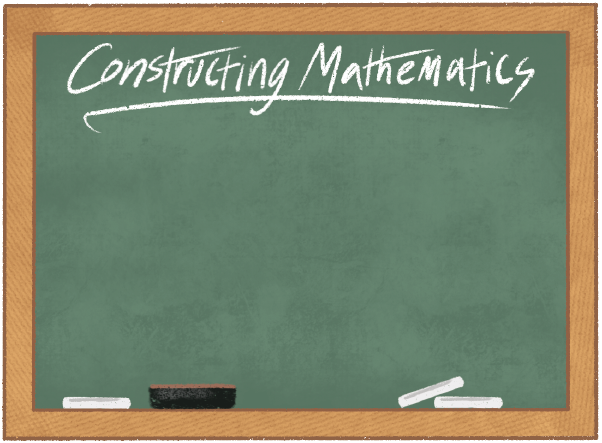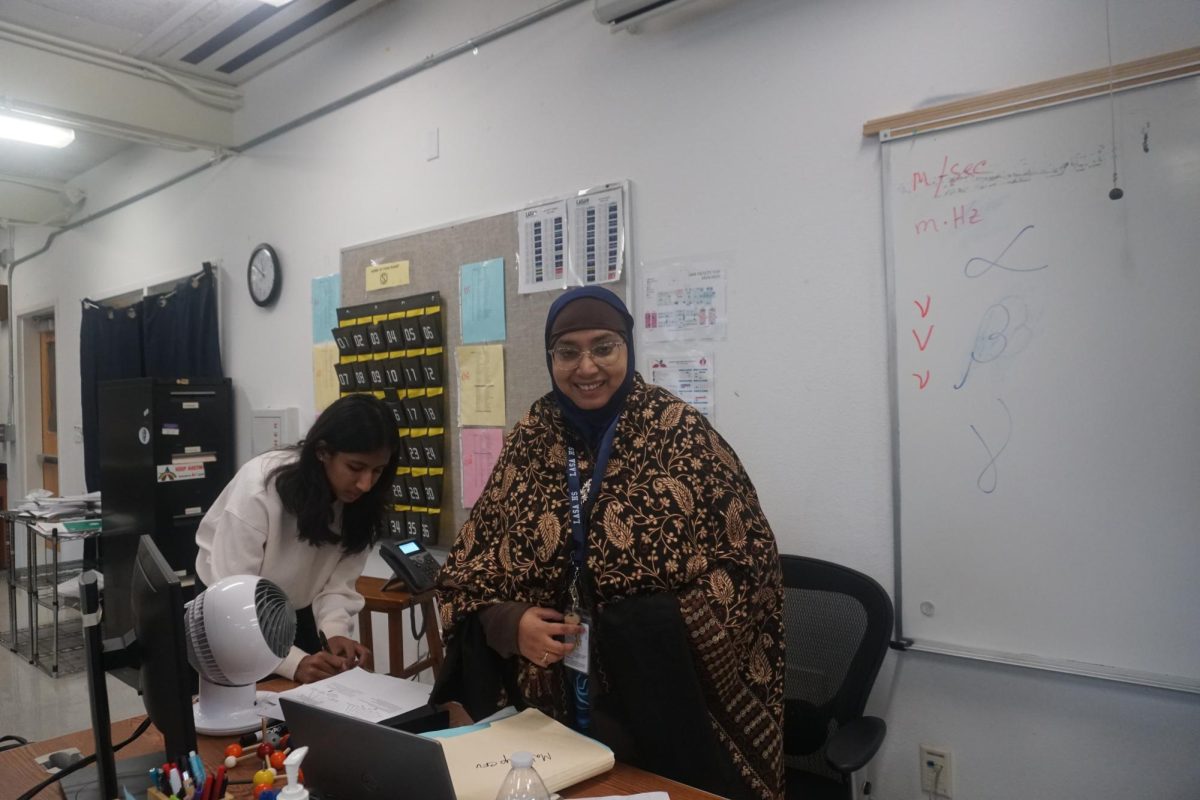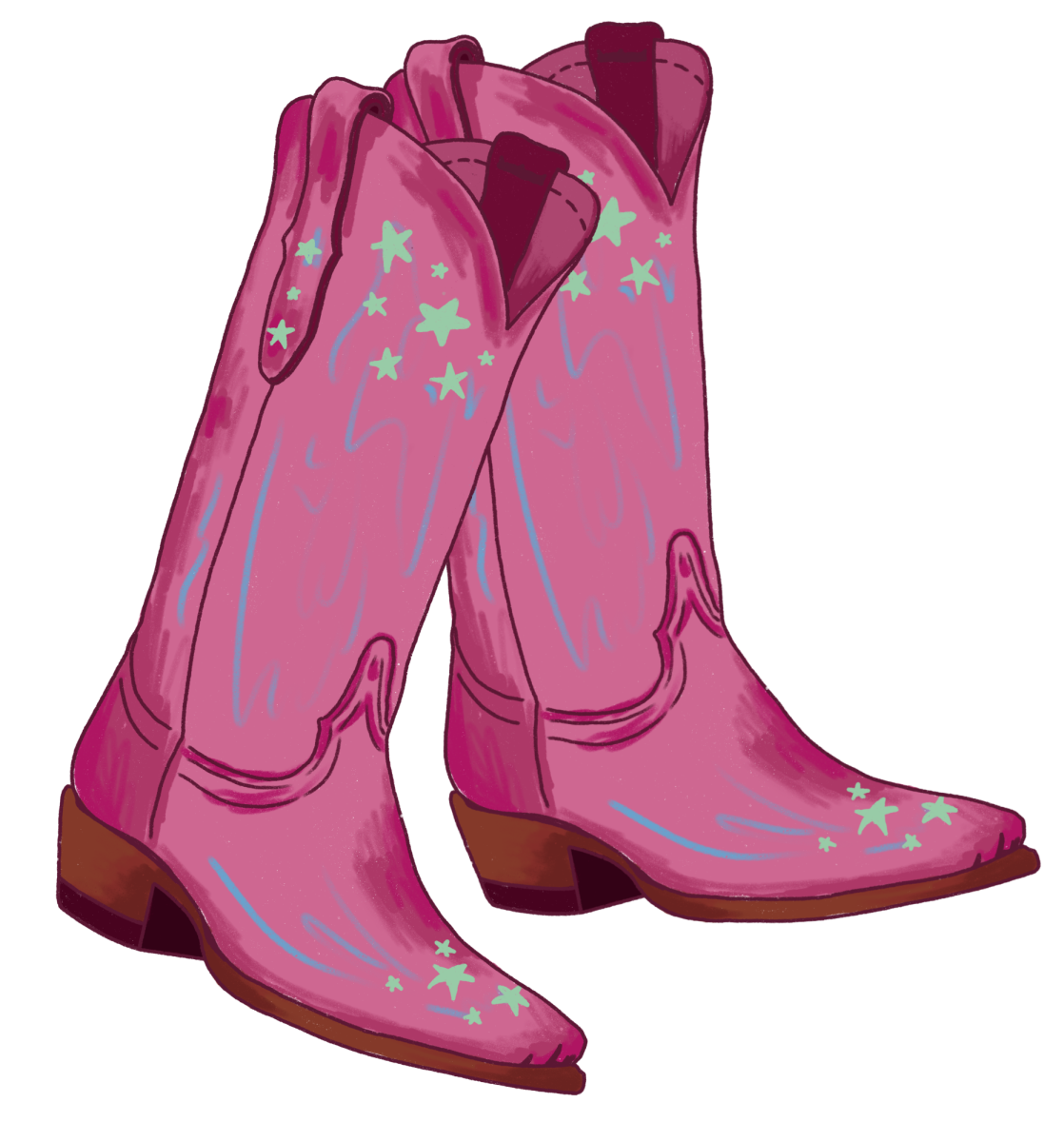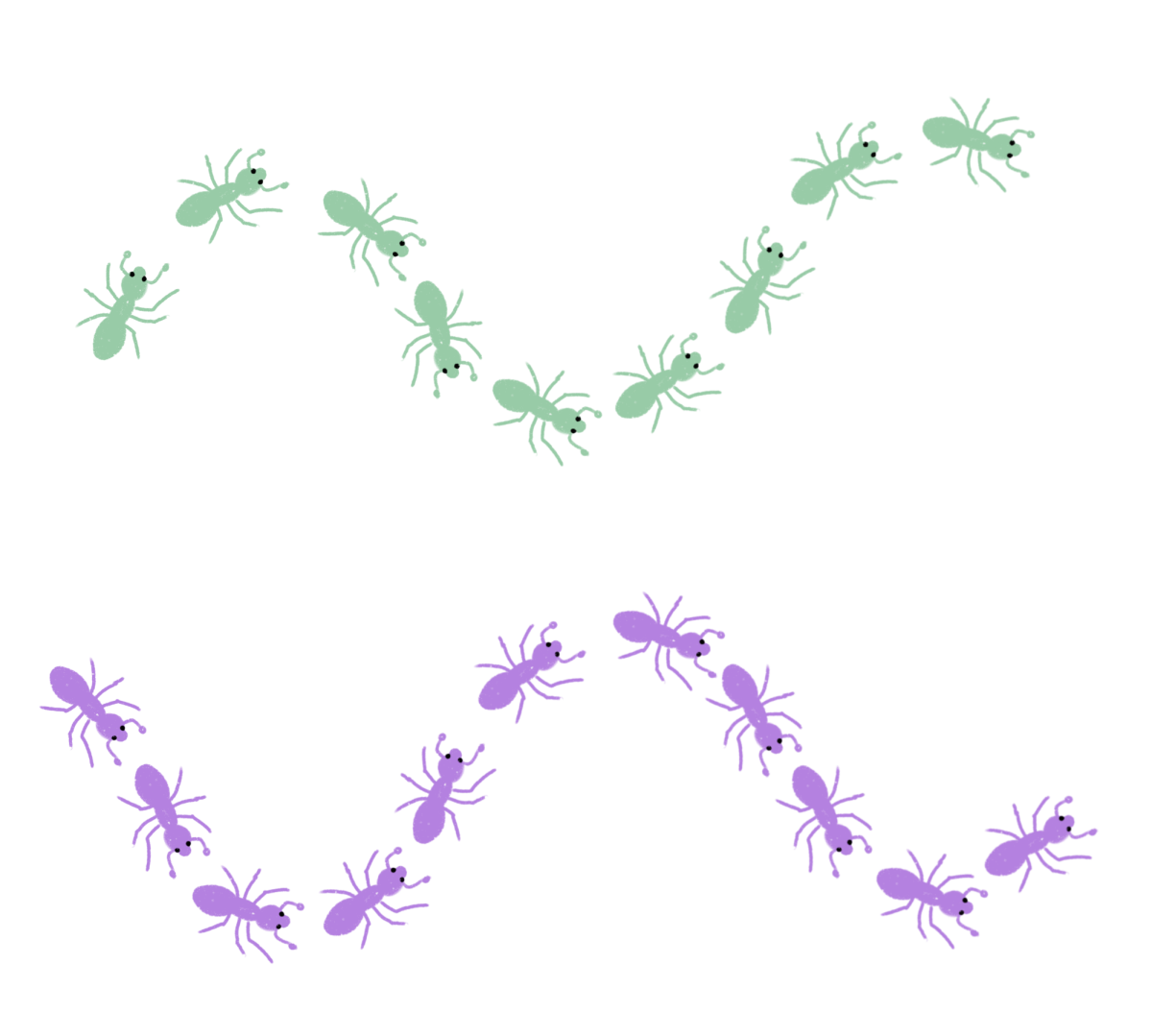Animosity has taken hold of the LASA student body. Over the past year, rumor accounts have caught LASA students’ attention over social media and become a mystery to many. These accounts allow students to post rumors anonymously for any followers in the form of confessions, jokes, and sometimes insults. Hurtful or kind, these messages are read by the accounts’ hundreds of followers as a form of information and entertainment.
Cyberbullying has become central to many high schools around the country. According to the Cyberbullying Research Center, more than 1 in 4 middle and high school students have been cyberbullied in the past 30 days, and the epidemic is dangerous. According to the Australian Human Rights Commission, cyberbullying can lead “to emotional and physical harm, loss of self-esteem, feelings of shame and anxiety, concentration and learning difficulties.” It is important to note that harmful social media accounts can have grave effects.
LASA Confessions is a private Instagram account with over 700 followers. It was formed from interest in the student body when the creators witnessed similar social media accounts created in neighboring schools. True to their platform, which allows people to direct-message (DM) the account with their opinions and then be posted without their names attached, the two students who currently run the account choose to remain anonymous.
“The accounts provide an outlet for students to express themselves,” LASA Confessions said. “It isn’t meant to be a rumor account. It was just supposed to be an open space to share opinions anonymously.”
The account provides a way for students to publicize any and all opinions they have, whether negative or positive. The creators have attempted to solve this by curating the confessions as they are sent to the account.
“We try to make sure the posts are appropriate, but each moderator has different tolerances which can lead to different kinds of posts,” LASA Confessions said.
Junior Sankrashan Balaji, who shared his opinions on the rumor accounts, has been mentioned on accounts many times for the past few years. He sees the animosity the accounts can generate as an opportunity for misinformation and rumors from students who can’t be held accountable.
“I think it’s really dangerous if you don’t know who’s writing it and they can’t even be held accountable for their own actions,” Balaji said.
Junior Laila Ross explained that animosity creates unimproved opinions, thus allowing students to say as they please without any true purpose. She finds social media to be a useless form of communication.
“I don’t like them because they are just filled with people trying to get attention and who are just spreading things about other people that are not even constructive,” Ross said.
Ross added that the rumor accounts can only be hurtful to the student body. She finds the account to make the social aspect of LASA less genuine.
“It’s damaging to the school as a whole because we can’t just be kind to each other face to face and then insulting each other online like Gossip Girl,” Ross said.
Having been mentioned on rumor accounts, Balaji reflected on the effects these rumors have had on him. He found the biggest issue to be the misinformation that can be spread.
“The more people see them, the more people’s perception on one’s matter changes,” Balaji said. “So, let’s say there’s something going on. And somebody who’s uninformed posts about it. Then, now more people know about it, and everyone’s talking about a different side of the story, maybe a wrong side of the story. So I do think it’s personally affected me on how I view things.”
However, Balaji still believes LASA Confessions has properly handled any negative rumors about students throughout the years. The account will openly remove any posts at a student’s request. He finds this action a respectful way to respond to any false information.
“I can’t give them all the blame because they’re just posting what they get,” Balaji said. “It’s like any news in general. They’re just getting what they see and posting what they have. So, if they didn’t know when they posted it, it could have been a genuine accident.”
He found the real culprits to be those who send the message because they utilize the public account as a way to say hurtful comments in a way that they can escape accountability.
Although rumor accounts are common in high schools across the nation, Balaji believes more efforts should be made to prevent them at LASA. Because of the school’s rigorous academics, many students are already under much pressure, and rumors can be detrimental to a student’s mental health. However, LASA Confessions attempts to prevent this to the best of its ability.
“We’re not the ones confessing these things; any issues brought up should be resolved amongst the students who have the problems,” LASA Confessions said. “We are simply a way for students to communicate their views, though we try not to let large negativity pass through, especially confessions that might negatively affect someone.”
An ex-owner of the account elaborated on their opinions of the management and purpose. Unlike the other two members, the anonymous source no longer participates in the social media account.
“I personally feel very responsible for any posts I made that could have hurt people, and that’s why I left,” the source said.
They found some comments to be comedic and believed their intention was positive. However, they explained that even with proper account management, no post can ever be completely harmless.
Ivy Sernovitz, a LASA senior, reflected on one of the more positive and funny parts of the account. While rumors play a large role in cyberbullying, according to Sernovitz, there are fun and silly situations that anonymous Instagram accounts can create.
“During a hold on Bring Your Parent to School Day last year, my friend Corry said, ‘There’s a hold in place because there’s a wild boar roaming the hallways,’” Sernovitz said. “Someone overheard him, and they found a photo, then the ‘boar’ was posted to the entire school. The rumor spread like wildfire.”
“I think it’s gone too far, and I don’t blame the people running it for staying or for posting what they do,” the source said. “I think they’re providing a good outlet for students, but every other post now is a nasty rumor or comment about someone.”
They believe it will always find its way back to being a damaging and unconstructive form of communication for the student body. The source mentioned that at its best, it was a safe space to share opinions that has quickly shifted into what it is today.
“The thing is, this account was always going to be a negative space because it’s a good place for students to get their frustrations out about issues with teachers, staff, et cetera,” the source said. “But it was supposed to feel safe. Instead that quickly turned to actually hurting other people.”
LASA Confessions isn’t the only anonymous rumor account that has found its way to students’ social media feeds and school halls. LASA Gwapevine is an account that produced jokes about students and LASA written and posted by its anonymous creators. The account was created by senior students who would specifically target their class of 2025. The creators of the account have asked to remain anonymous.
“We would go through the yearbook and just write down a bunch of jokes about people,” Gwapevine said. “And so that’s how it started.”
Sarah Moser is one such LASA senior who was mentioned in the account. Before this year, she hadn’t seen many online rumor accounts, but she has found LASA to have an extraordinary number of them.
“Many accounts post funny things throughout the day that aren’t derogatory towards students, and I don’t think there’s anything super wrong with those types of accounts,” Moser said. “But I think there’s a limit.”
Gwapevine explained that the account originally began with harmless jokes about students. However, Moser believes there isn’t any purpose for online accounts that talk about students anonymously whatsoever.
“I guess they can maybe be viewed as a sense of camaraderie, but I don’t know,” Moser said. “I don’t really think they have any benefit to them. I think they’re just a waste of time.”
As Moser described, the account began with small jokes. In addition, Gwapevine acknowledged that they began straying away from playful, harmless humor as time went on.
“The goal was always to make it in good taste, and then I think it kind of morphed into we-can-post-whatever-we-want,” Gwapevine said.
The account was created at the beginning of the school year, and asthe fall semester continued, it began to fixate on specific individuals as more “drama” ensnared more and more of the senior class. Moser explained that this made it so that soon enough, the account went from being a funny joke to a rumor mill Moser explained.
“When I first followed it I thought it was pretty harmless,” Moser said. “They were just making some pointless jokes. But it got to a point where one of my friends, who had been struggling and she hasn’t been at school a lot, they targeted her, and that’s just kind of pointless.”
Moser isn’t alone in her opinion. Gwapevine creators also found their focus on drama damaging and regretted the transition.
“Tasteful humor about the drama that was happening sort of turned into this drama that is hurting people, and it doesn’t make sense to be talking about it,” Gwapvine said. “Especially because it’s drama, even if [meant as] a joke.
Once the account started to specifically target people, people became entranced in discovering who was behind the account’s screen. Moser explained that the account created a lack of communication and caused a divide within the senior class.
“There’s been a lot of drama between some people,” Moser said. “It creates riffs, especially when you don’t know who it is and everyone’s speculating.”
As speculation grew, Gwapevine became more focused on protecting their identity. At times, they would plan when to post to create an illusion of innocence for all the account contributors. Moser was one person who contacted the account after personal comments were posted about her.
“I’m not gonna lie, it didn’t bother me that much until I reached out to them and they were rude when DM’ing me because I was never rude to them, I never attacked them,” Moser said.
Many of Moser’s friends also contacted the account to defend their friends who were being targeted. Moser added that the creators were responsible for any hurt the account caused and should take accountability.
“There were probably like four or five people who were just upset about it, and our view was that their complaints [to us] were usually starting drama,” Gwapevine said. “And our view was like, ‘Oh, well, you’re starting drama by DMing the account,’ but I think the reality is that we’re sort of the ones making the flywheel in the first place.”
Ultimately, Moser found the account to be unnecessary, and Gwapevine has now been deleted. Some people that the account targeted were her friends who were struggling outside of school. She saw the personal aspects as excessive and rude as advertised on the internet.
“There’s no need to bring in bullying because people are impressionable. You never know what someone’s going through,” Moser said. “There’s a limit between rumors and bullying.”


